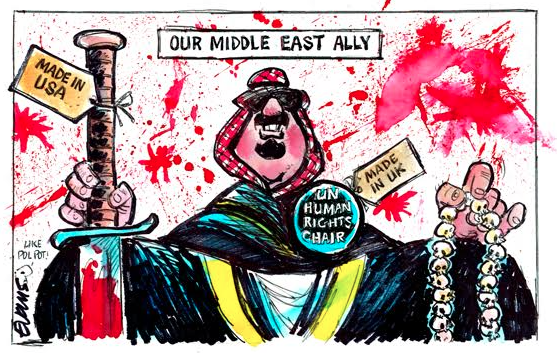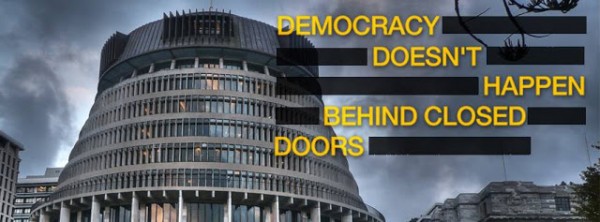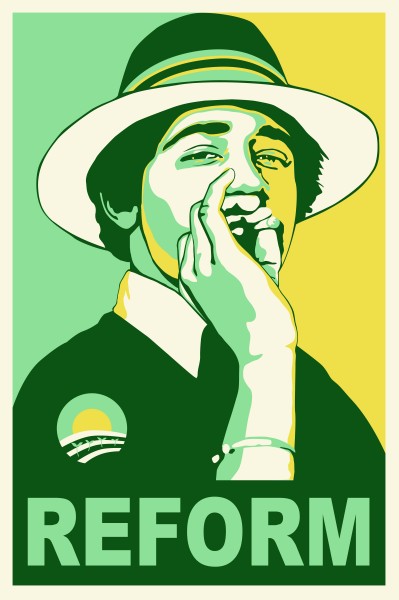
The true extent of America’s horrifying culpability in plotting Libya’s downfall has been exposed in the latest Hillary email dump and the rational for the overthrow is as disturbing as the means by which America toppled Gaddafi…
Hillary’s Death Squads
A March 27, 2011, intelligence brief on Libya, sent by long time close adviser to the Clintons and Hillary’s unofficial intelligence gatherer, Sidney Blumenthal, contains clear evidence of war crimes on the part of NATO-backed rebels. Citing a rebel commander source “speaking in strict confidence” Blumenthal reports to Hillary [emphasis mine]:
Under attack from allied Air and Naval forces, the Libyan Army troops have begun to desert to the rebel side in increasing numbers. The rebels are making an effort to greet these troops as fellow Libyans, in an effort to encourage additional defections.
(Source Comment: Speaking in strict confidence, one rebel commander stated that his troops continue to summarily execute all foreign mercenaries captured in the fighting…).
While the illegality of extra-judicial killings is easy to recognize (groups engaged in such are conventionally termed “death squads”), the sinister reality behind the “foreign mercenaries” reference might not be as immediately evident to most.
While over the decades Gaddafi was known to make use of European and other international security and infrastructural contractors, there is no evidence to suggest that these were targeted by the Libyan rebels.
There is, however, ample documentation by journalists, academics, and human rights groups demonstrating that black Libyan civilians and sub-Saharan contract workers, a population favored by Gaddafi in his pro-African Union policies, were targets of “racial cleansing” by rebels who saw black Libyans as tied closely with the regime.[1]
Black Libyans were commonly branded as “foreign mercenaries” by the rebel opposition for their perceived general loyalty to Gaddafi as a community and subjected to torture, executions, and their towns “liberated” by ethnic cleansing. This is demonstrated in the most well-documented example of Tawergha, an entire town of 30,000 black and “dark-skinned” Libyans which vanished by August 2011 after its takeover by NATO-backed NTC Misratan brigades.
These attacks were well-known as late as 2012 and often filmed, as this report from The Telegraph confirms:
After Muammar Gaddafi was killed, hundreds of migrant workers from neighboring states were imprisoned by fighters allied to the new interim authorities. They accuse the black Africans of having been mercenaries for the late ruler. Thousands of sub-Saharan Africans have been rounded up since Gaddafi fell in August.
It appears that Clinton was getting personally briefed on the battlefield crimes of her beloved anti-Gaddafi fighters long before some of the worst of these genocidal crimes took place.
…so Clinton knew the forces she backed were glorified race war death squads. It is this use of immoral power that should disqualify her from the Democratic nomination and Bernie Sanders end up squaring off against Donald Trump.
But it gets far worse, the drive to end Gaddafi also saw the West back and arm Al-Qaeda…
Al-Qaeda and Western Special Forces Inside Libya
The same intelligence email from Sydney Blumenthal also confirms what has become a well-known theme of Western supported insurgencies in the Middle East: the contradiction of special forces training militias that are simultaneously suspected of links to Al Qaeda.
Blumenthal relates that “an extremely sensitive source” confirmed that British, French, and Egyptian special operations units were training Libyan militants along the Egyptian-Libyan border, as well as in Benghazi suburbs.
While analysts have long speculated as to the “when and where” of Western ground troop presence in the Libyan War, this email serves as definitive proof that special forces were on the ground only within a month of the earliest protests which broke out in the middle to end of February 2011 in Benghazi.
By March 27 of what was commonly assumed a simple “popular uprising” external special operatives were already “overseeing the transfer of weapons and supplies to the rebels” including “a seemingly endless supply of AK47 assault rifles and ammunition.”
Yet only a few paragraphs after this admission, caution is voiced about the very militias these Western special forces were training because of concern that, “radical/terrorist groups such as the Libyan Fighting Groups and Al Qa’ida in the Islamic Maghreb (AQIM) are infiltrating the NLC and its military command.”
…so American foreign policy feeds the very extremism we use to terrify domestic voters into giving away more and more mass surveillance protections.
So what was this removal of Gaddafi for? What justified genocidal race death squads and arming the very extremists who in turn threaten western cities? Was it Gaddafi’s human rights abuses? Is that what America was appealing to when it armed and trained racist death squads?
Oh no. The reason America took out Libya with such vile tactics was because Libya was threatening French Oil and Gold interests…
The Threat of Libya’s Oil and Gold to French Interests
Though the French-proposed U.N. Security Council Resolution 1973 claimed the no-fly zone implemented over Libya was to protect civilians, an April 2011 email sent to Hillary with the subject line “France’s client and Qaddafi’s gold” tells of less noble ambitions.
The email identifies French President Nicholas Sarkozy as leading the attack on Libya with five specific purposes in mind: to obtain Libyan oil, ensure French influence in the region, increase Sarkozy’s reputation domestically, assert French military power, and to prevent Gaddafi’s influence in what is considered “Francophone Africa.”
Most astounding is the lengthy section delineating the huge threat that Gaddafi’s gold and silver reserves, estimated at “143 tons of gold, and a similar amount in silver,” posed to the French franc (CFA) circulating as a prime African currency. In place of the noble sounding “Responsibility to Protect” (R2P) doctrine fed to the public, there is this “confidential” explanation of what was really driving the war [emphasis mine]:
This gold was accumulated prior to the current rebellion and was intended to be used to establish a pan-African currency based on the Libyan golden Dinar. This plan was designed to provide the Francophone African Countries with an alternative to the French franc (CFA).
(Source Comment: According to knowledgeable individuals this quantity of gold and silver is valued at more than $7 billion. French intelligence officers discovered this plan shortly after the current rebellion began, and this was one of the factors that influenced President Nicolas Sarkozy’s decision to commit France to the attack on Libya.)
Though this internal email aims to summarize the motivating factors driving France’s (and by implication NATO’s) intervention in Libya, it is interesting to note that saving civilian lives is conspicuously absent from the briefing.
Instead, the great fear reported is that Libya might lead North Africa into a high degree of economic independence with a new pan-African currency.
French intelligence “discovered” a Libyan initiative to freely compete with European currency through a local alternative, and this had to be subverted through military aggression.
At this point one might be wondering, ‘how on earth did they manage to con everyone at the time with this war in Libya’? Well, there’s an answer to that…
The Ease of Floating Crude Propaganda
Early in the Libyan conflict Secretary of State Clinton formally accused Gaddafi and his army of using mass rape as a tool of war. Though numerous international organizations, like Amnesty International, quickly debunked these claims, the charges were uncritically echoed by Western politicians and major media.
It seemed no matter how bizarre the conspiracy theory, as long as it painted Gaddafi and his supporters as monsters, and so long as it served the cause of prolonged military action in Libya, it was deemed credible by network news.
Two foremost examples are referenced in the latest batch of emails: the sensational claim that Gaddafi issued Viagra to his troops for mass rape, and the claim that bodies were “staged” by the Libyan government at NATO bombing sites to give the appearance of the Western coalition bombing civilians.
In a late March 2011 email, Blumenthal confesses to Hillary that,
I communicated more than a week ago on this story—Qaddafi placing bodies to create PR stunts about supposed civilian casualties as a result of Allied bombing—though underlining it was a rumor. But now, as you know, Robert gates gives credence to it. (See story below.)
Sources now say, again rumor (that is, this information comes from the rebel side and is unconfirmed independently by Western intelligence), that Qaddafi has adopted a rape policy and has even distributed Viagra to troops. The incident at the Tripoli press conference involving a woman claiming to be raped is likely to be part of a much larger outrage. Will seek further confirmation.
Not only did Defense Secretary Robert Gates promote his bizarre “staged bodies” theory on CBS News’ “Face The Nation,” but the even stranger Viagra rape fiction made international headlines as U.S. Ambassador to the UN Susan Rice made a formal charge against Libya in front of the UN Security Council.
What this new email confirms is that not only was the State Department aware of the spurious nature of what Blumenthal calls “rumors” originating solely with the rebels, but did nothing to stop false information from rising to top officials who then gave them “credence.”
It appears, furthermore, that the Viagra mass rape hoax likely originated with Sidney Blumenthal himself.
So America armed extremists, empowered racial genocides via paramilitary militia and did so to ensure NATO gold and oil interests were protected while weakening an African country that might gain some level of self-sufficiency.
The encore to this coup was the involvement in Syria…
The public history of relations between the US and Syria over the past few decades has been one of enmity. Assad condemned the 9/11 attacks, but opposed the Iraq War. George W. Bush repeatedly linked Syria to the three members of his ‘axis of evil’ – Iraq, Iran and North Korea – throughout his presidency. State Department cables made public by WikiLeaks show that the Bush administration tried to destabilise Syria and that these efforts continued into the Obama years. In December 2006, William Roebuck, then in charge of the US embassy in Damascus, filed an analysis of the ‘vulnerabilities’ of the Assad government and listed methods ‘that will improve the likelihood’ of opportunities for destabilisation. He recommended that Washington work with Saudi Arabia and Egypt to increase sectarian tension and focus on publicising ‘Syrian efforts against extremist groups’ – dissident Kurds and radical Sunni factions – ‘in a way that suggests weakness, signs of instability, and uncontrolled blowback’; and that the ‘isolation of Syria’ should be encouraged through US support of the National Salvation Front, led by Abdul Halim Khaddam, a former Syrian vice president whose government-in-exile in Riyadh was sponsored by the Saudis and the Muslim Brotherhood. Another 2006 cable showed that the embassy had spent $5 million financing dissidents who ran as independent candidates for the People’s Assembly; the payments were kept up even after it became clear that Syrian intelligence knew what was going on. A 2010 cable warned that funding for a London-based television network run by a Syrian opposition group would be viewed by the Syrian government ‘as a covert and hostile gesture toward the regime’.
But there is also a parallel history of shadowy co-operation between Syria and the US during the same period. The two countries collaborated against al-Qaida, their common enemy. A longtime consultant to the Joint Special Operations Command said that, after 9/11, ‘Bashar was, for years, extremely helpful to us while, in my view, we were churlish in return, and clumsy in our use of the gold he gave us. That quiet co-operation continued among some elements, even after the [Bush administration’s] decision to vilify him.’ In 2002 Assad authorised Syrian intelligence to turn over hundreds of internal files on the activities of the Muslim Brotherhood in Syria and Germany. Later that year, Syrian intelligence foiled an attack by al-Qaida on the headquarters of the US Navy’s Fifth Fleet in Bahrain, and Assad agreed to provide the CIA with the name of a vital al-Qaida informant. In violation of this agreement, the CIA contacted the informant directly; he rejected the approach, and broke off relations with his Syrian handlers. Assad also secretly turned over to the US relatives of Saddam Hussein who had sought refuge in Syria, and – like America’s allies in Jordan, Egypt, Thailand and elsewhere – tortured suspected terrorists for the CIA in a Damascus prison.
Which is why when Obama visits for his pay off trip to John Key for Key’s service to the Corporate hegemony, we should protest loud and clear that NZ resents and condemns America’s foreign policy which helps ignite and grow the very grievances that turn people to extremism.
Especially when the military industrial complex decides foreign policy for itself…
A new report by the Pulitzer-winning veteran journalist Seymour Hersh says the Joint Chiefs of Staff has indirectly supported Bashar al-Assad in an effort to help him defeat jihadist groups
Look at American support for Saudi Arabia. After executing 47 people at a time, including a Shiite Cleric to inflame Iran, NZ and America should be using its position on the Security Council to demand Saudi Arabia are removed from the UN Human Rights Council…
By subjugating women, trampling religious freedom, oppressing minorities, and imprisoning innocent human rights activist and blogger Raif Badawi, Saudi Arabia demonstrates why the U.N. should NEVER have elected this oppressive regime to its Human Rights Council.
And it should never have placed Saudi Arabia at the head of the committee that selects UN human rights experts. For Saudi Arabia to decide who will be an investigator on violence against women or arbitrary detention is like asking the foxes to guard the chickens.
Article 8 of the council’s founding resolution provides that member states can be removed for gross and systematic violations of human rights. More than ever, it’s time to finally remove Saudi Arabia.
…but what are we doing? In NZ we are trying to bribe a Saudi businessmen to get a free trade deal with Saudi Arabia and America is attempting to have its cake, eat it, steal everyone else’s cake, eat that too, shoot everyone at the party and then sue their families for the blood stains…
The four core elements of Obama’s Syria policy remain intact today: an insistence that Assad must go; that no anti-IS coalition with Russia is possible; that Turkey is a steadfast ally in the war against terrorism; and that there really are significant moderate opposition forces for the US to support. The Paris attacks on 13 November that killed 130 people did not change the White House’s public stance, although many European leaders, including François Hollande, advocated greater co-operation with Russia and agreed to co-ordinate more closely with its air force; there was also talk of the need to be more flexible about the timing of Assad’s exit from power. On 24 November, Hollande flew to Washington to discuss how France and the US could collaborate more closely in the fight against Islamic State. At a joint press conference at the White House, Obama said he and Hollande had agreed that ‘Russia’s strikes against the moderate opposition only bolster the Assad regime, whose brutality has helped to fuel the rise’ of IS. Hollande didn’t go that far but he said that the diplomatic process in Vienna would ‘lead to Bashar al-Assad’s departure … a government of unity is required.’ The press conference failed to deal with the far more urgent impasse between the two men on the matter of Erdoğan. Obama defended Turkey’s right to defend its borders; Hollande said it was ‘a matter of urgency’ for Turkey to take action against terrorists. The JCS adviser told me that one of Hollande’s main goals in flying to Washington had been to try to persuade Obama to join the EU in a mutual declaration of war against Islamic State. Obama said no. The Europeans had pointedly not gone to Nato, to which Turkey belongs, for such a declaration. ‘Turkey is the problem,’ the JCS adviser said.
If the West wants to stop extremism, perhaps we should stop funding it first.

















